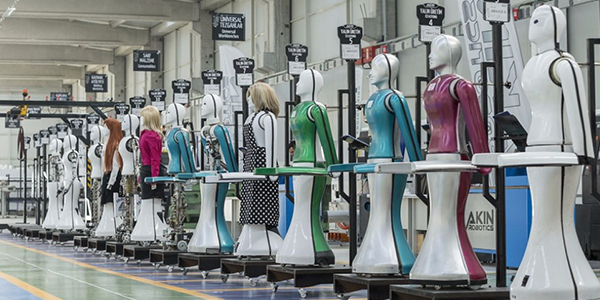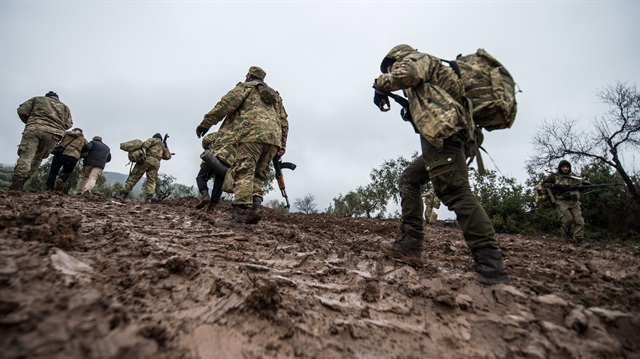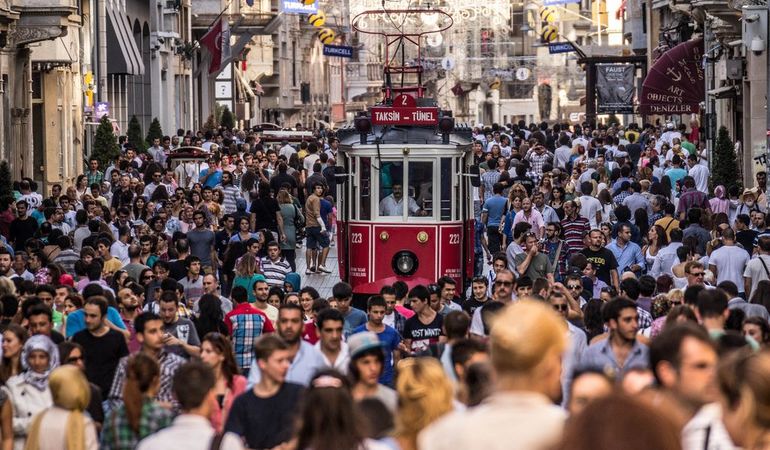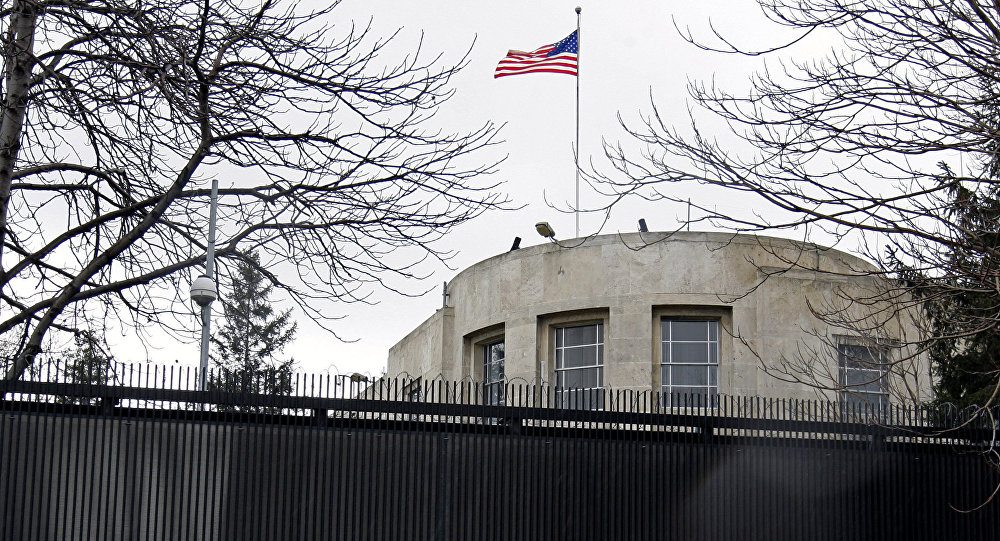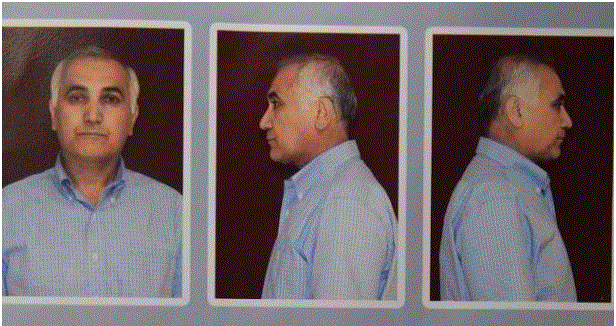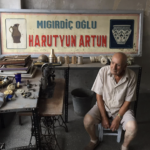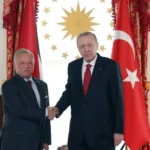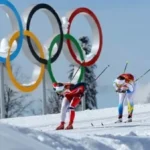Adam McConnel
As Paul Krugman is forced to repeat endlessly in his blog concerning various malevolent forces in the economic pundit’s profession, no amount of evidence will ever convince some of them that they might be wrong, or that they should re-examine their assumptions or their data.
Doomsday predictions on the Turkish economy have been a feature of the international press for nearly a decade now. But despite all the ominous pronouncements, despite the now seven-year slump in the global economy triggered by the mortgage derivatives collapse in 2008, despite attempts to bring down the Turkish government through street violence and manipulation of the judiciary and the police, the Turkish economy continues to grow.
On 29 November 2015, the New York Times decided to take what was, for them, a new angle on the “Turkey’s economy is collapsing!” theme. Keith Bradsher, a veteran NYT journalist, and normally the paper’s Hong Kong bureau chief specializing in Asian economic issues, was sent by the editors to Turkey in the weeks after Roger Cohen’s trip to cover the elections. Normally this added attention to Turkey would be welcome, but the NYT’s editors’ intentions are not so pure. Bradsher had already published one anti-AKP or anti-Erdoğan piece (“Range of Frustrations Reached Boil as Turkey Shot Down Russian Jet,” 25 November 2015) which featured the NYT’s usual combination of factual mistakes and interpretive distortions in its now long-running campaign against the Turkish government.
Here, I want to emphasize a vital point. Even though I sometimes criticize specific NYT journalists for what they write about Turkey, fundamentally the fault lies with the paper’s editors. It is they who have chosen to take sides in Turkey’s domestic politics, in what is nothing more than a fit of imperial pique with overtones of bigotry and orientalism. This effort to slander a foreign government, now eighteen months old and counting, is a shameful episode in journalism that should be studied and dissected: What ideological or psychological impulses have inspired this obsession?
Bradsher’s most recent article, titled “Tensions with Russia Add a Chill to Turkey’s Economy” (29 November 2015), condenses two subjects — Turkey’s economy and the recent (deadly) tiff with Russia — into another attempt to convince their more credulous readers that Mr. Putin’s sanctions might, just might, be the last straw for Turkey’s economy.
Even though there’s obviously no guarantee that the Russian sanctions won’t cause some sort of difficulty, we’ve been through all this many times before. The Turkish banking sector collapsed in February 2001; the 2003 U.S. invasion of Iraq upended what had been a booming Turkish trade with that country; the mortgage derivatives collapse hit the EU’s economy, which is Turkey’s main trading partner; the Arab Spring caused widespread difficulties across a swath of countries important to Turkey’s export markets; the Syrian civil war crippled trade with another of Turkey’s neighbors; the military coup in Egypt brought Turkey’s trade with that country to a standstill. Year after year, various foreign commentators have grimly, sometimes maliciously, forecasted the End Times for Turkey’s economy.
And yet, Turkey’s economy continues to grow. Slowly, to be sure, and not as much as everyone would like, but it does yet grow. Eppur si muove!
For his information, Bradsher goes to Yılmaz Büyükerşen, mayor of the Anatolian city of Eskişehir (the pronunciation of which, as provided by the author, is incorrect). Büyükerşen supplies comments that appear innocuous: the economy is stalling, lots of Syrian refugees are multiplying the unemployment problem. This seems normal enough, right?
The more cautious reader might take a look at the results from last year’s local elections (https://tr.wikipedia.org/wiki/2014_T%C3%BCrkiye_yerel_se%C3%A7imleri) and this year’s parliamentary elections (https://tr.wikipedia.org/wiki/Haziran_2015_T%C3%BCrkiye_genel_se%C3%A7imleri; https://tr.wikipedia.org/wiki/Kas%C4%B1m_2015_T%C3%BCrkiye_genel_se%C3%A7imleri). What is that single red splotch in a massive yellow sea of AKP municipalities on the left-hand side of Anatolia? That’s Eskişehir. In other words, Bradsher chose the one moderately industrial region in all of Anatolia (outside of İzmir) where the opposition Republican People’s Party (CHP in Turkish) controls the local municipality. Bradsher doesn’t point this out to the reader.
Another fact that Bradsher passes over is that the CHP is the party that promised, in the run-up to Turkey’s June 2015 general elections, to send the two million-plus Syrian refugees in Turkey back to Syria. So it is not only the U.S. Republican Party that contemplates such inhuman policies; so does Turkey’s own “loyal opposition.” The CHP have even taken their stance one step further, and sent a delegation to Damascus to hobnob and pose for pictures with Bashar Assad. Might that account for Büyükerşen’s comments concerning the refugees? Notice how similar that rhetoric sounds to the U.S. right-wing’s attitude on immigrants. There are even a number of domestic commentators, all from the Turkish opposition, claiming that the Turkish government cooks the books on growth and inflation. Sounds familiar, doesn’t it?
Out of curiosity I decided to look at the Eskişehir Municipality’s web site to see what social services they might be providing to the Syrian refugees (http://www.eskisehir.bel.tr/). I scanned more than 200 news releases from the Eskişehir Municipality going back to July 2015, and found no announcements or news items about social services for the Syrian refugees; in fact, there are no announcements whatsoever concerning the Syrian refugees. The reader unfamiliar with Turkish politics might find that curious given Büyükerşen’s seeming concern with the issue, but this is not a surprise when you remember that this is a CHP municipality. Instead, there are lots of items about classical music performances and theater productions. Again, foreign observers might be impressed by that, but in fact this too is something ideological. CHP-sympathizing Kemalist elites always emphasize Western classical music and theater because their ideo-political stance favors Western art forms. The only items even distantly related to services for the unemployed are notices about the Eskişehir Municipality’s continuing education classes (http://www.eskisehir.bel.tr/icerik_dvm.php?icerik_id=1385&cat_icerik=1&menu_id=24).
More interestingly, as I scrolled through the past months’ news items on the Eskişehir Municipality’s site, I noted that several other representatives from publications also involved in the international attack on the Turkish government had recently been to visit Mayor Büyükerşen. Thus, Bradsher had been preceded on 23 November 2015 by Bloomberg’s Turkish affiliate http://www.eskisehir.bel.tr/icerik_dvm.php?icerik_id=1499&cat_icerik=1&menu_id=24)
to whom Büyükerşen explained the “Social Democratic Municipal Approach” (see 18 November 2015: http://www.eskisehir.bel.tr/icerik_dvm.php?icerik_id=1493&cat_icerik=1&menu_id=24), as well as by Le Monde (27 October 2015: http://www.eskisehir.bel.tr/icerik_dvm.php?icerik_id=1451&cat_icerik=1&menu_id=24). Bloomberg Turkey is an excellent illustration of the confusion that some media publications experience concerning Turkish politics. The AKP are strongly pro-business, yet both Bloomberg and the Turkish Association of Industrialists and Businessmen (TÜSİAD) have been vehemently anti-AKP for the past few years.
The more innocent reader might also question the relevance of data about Turkish popular sympathies for DAESH to the economy. Nothing, of course — except to provide a reference point to trigger Western readers’ fear of the Islamic Threat. The author also glosses over the fact that DAESH recruits are far more likely to come from Western societies than from Turkey, where the amount of sympathy for radical forms of Islam can be easily identified. Look at the election results for the Saadet (Felicity) Party, and you’ll have all the clues you need. In the 1st November 2015 election Saadet’s tally dropped from over 4 to under 1 percent, which is a good indication of Turkish Muslims turning away from a more radical-oppositional Islam..
All this aside, if the NYT editors had really wanted to provide the reader with information capable of leading to a more balanced and objective understanding of the Turkish economy’s immediate future, they should have sent Bradsher to Bursa or İzmit/Kocaeli. Those are the centers of Turkish heavy industry outside of İstanbul, including especially the automobile assembly sector. He could also have gone to Denizli, a center of Turkish textile production. Kayseri would be yet another option, one of the “Anatolian Tigers” so hugely hyped seven or eight years ago, and known for its furniture industry. If Bradsher wanted to go to another municipality with emerging industry that is controlled by an opposition party, Adana would have been waiting.
But at the end of the day, İstanbul’s mayor would be the absolutely most normal or top choice for foreign correspondents who want to obtain more information about the Turkish economy. For İstanbul is still very much the center of Turkey’s economy — but İstanbul’s municipality has been controlled by the AKP (and its political predecessors) since the mid-1990s. The current mayor, Kadir Topbaş, has overseen the transformation of İstanbul from a muddy grey urban mass into a much greener, much more colorful city in the past twelve years. The tulips that now decorate the city’s avenues in April were his initiative, amongst many other improvements. Should I mention that the Kemalist elites were originally against planting all those tulips in İstanbul’s medians? Supposedly it was a waste of public funds. Topbaş’s accomplishments are recognized internationally as he has served as the President of the United Cities and Local Governments, the world’s primary organization for local and city governments, since 2010.
Finally, that high-speed rail line that Bradsher uses to lead off his article? Built by the AKP, it has, of course, brought more life to Eskişehir’s economy. But in a bizarre example of misplaced militancy, the Kemalist elites don’t like to ride it for the simple fact that it is an AKP achievement (the same is true for the Marmaray line going under the Bosphorus in İstanbul). That is the depth of animosity that CHP supporters feel towards the ruling party.
So, now that you have all this information, how trustworthy do you think Bradsher’s article is? That may be why Bradsher forgets to mention the single most relevant fact to his entire discussion, that the Turkish economy will grow this year and is predicted to continue growing over the next two years — until the very end of his article (along with a graph). That does throw a wet blanket over his whole narrative.
Yazıyı beğendiysen, patronumuz olur musun?
Evet, çok ciddi bir teklif bu. Patronumuz yok. Sahibimiz kar amacı gütmeyen bir dernek. Bizi okuyorsan, memnunsan ve devam etmesini istiyorsan, artık boş olan patron koltuğuna geçmen lazım.
Serbestiyet; Türkiye'nin gri alanı. Siyah ve beyazlar içinde bu gri alanı korumalıyız. Herkese bir gün gri alanlar lazım olur.







